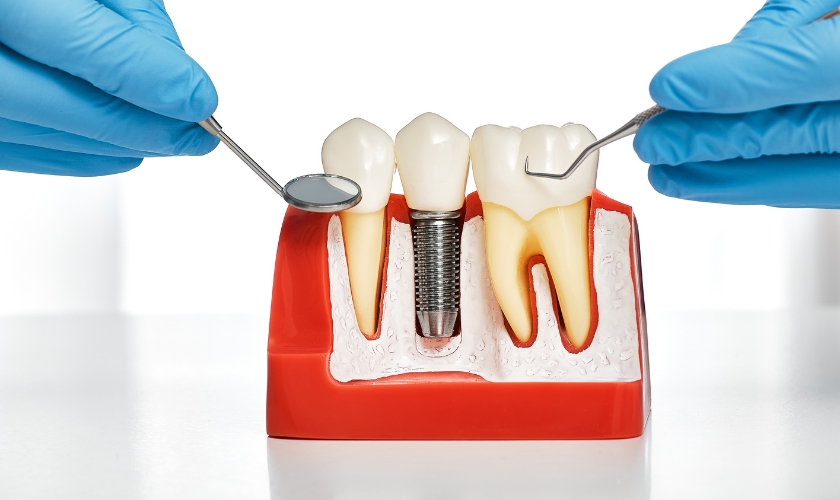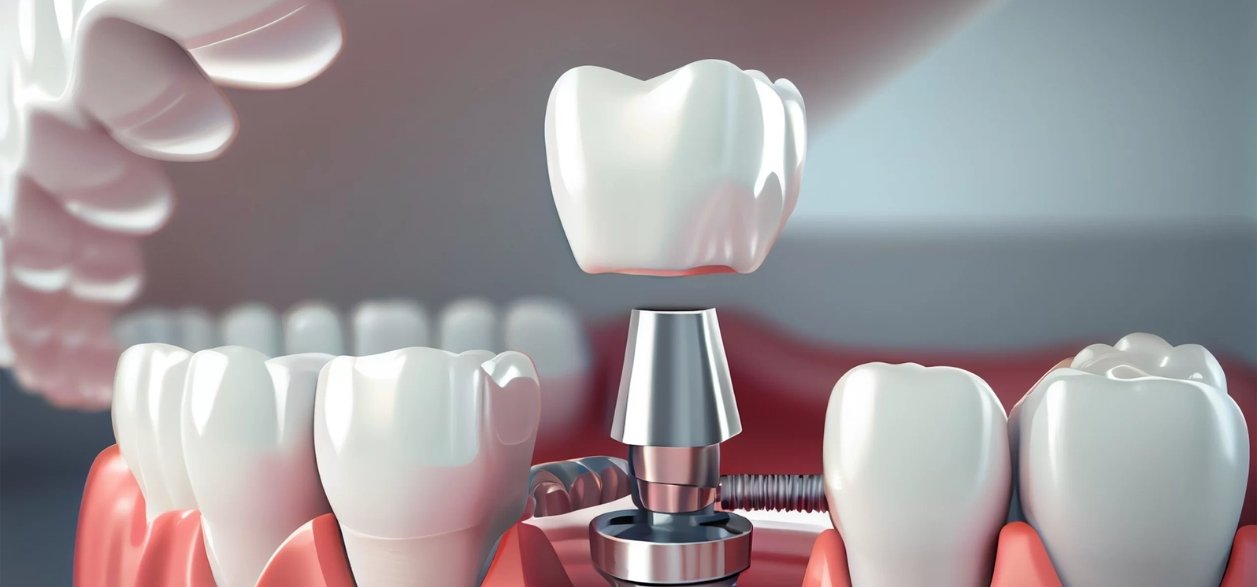Managing Diabetes? Here’s How It Affects Your Dental Implants

Dental implants provide long-lasting and natural-looking solutions for your missing teeth. The results are good and proven. However, having diabetes might change the scenario to a certain extent.
With uncontrolled blood sugar levels, your body becomes prone to many infections, and your natural healing capacity is also affected. Does this mean dental implants are not a suitable option for diabetic people? Not at all. Diabetes does pose certain challenges, but these are manageable with the right action.
Let’s discuss how diabetes affects implants and what you can do to enhance your probability of success.
What Are the Risks of Getting Dental Implants with Diabetes?
Delayed Healing and Higher Chances of Infection
Diabetes impairs your body’s healing process. The bone and gums must heal and bond with the implant after dental implant surgery. However, high blood sugar levels can hinder healing by minimizing blood supply to the surgical area. This slower healing increases the risk of infection, which can jeopardize the implant before it integrates with the jawbone.
Challenges With Osseointegration
For a dental implant to be successful, it needs to go through osseointegration – a process in which the titanium implant integrates with the jawbone. Diabetes can disrupt this process because the bone density is weakened and bone regeneration is compromised. If the bone fails to bond with the implant, it can result in implant failure.
Increased Risk of Peri-Implantitis
Diabetes is directly associated with gum disease, and this raises the risk of peri-implantitis. In this condition, the tissue surrounding the implant gets infected and inflamed. It can lead to bone loss, making the implant less stable. When not treated properly, it can also lead to implant failure.
Higher Chances of Implant Failure
Research indicates that the rate of implant failure is greater in diabetic people than in non-diabetics, particularly if the diabetes is uncontrolled. If you can manage the diabetes well, the success rate can be good. But, with uncontrolled diabetes, the chances of complications are much higher.
How to Get a Successful Dental Implant with Diabetes?
Maintain Stable Blood Sugar Levels
Keeping your diabetes in control is the most significant factor in successful implants. Work closely with your physician so your blood sugar levels remain stable during and after the implant surgery.
Give Your Mouth Special Attention
As gum disease and infection are more prevalent in diabetics, taking good care of your teeth is of utmost importance. Brush twice a day, floss once a day, and use an antibacterial mouthwash to control nasty bacterial growth.
Eat a Healing-Friendly Diet
Your nutrition is an important part of post-surgical healing. Eat foods high in vitamins A, C, and D, as well as calcium and protein. These elements will help heal your bones and gums. Steer clear of a lot of sugar and acidic foods, which delay healing and increase the risk of infection.
Schedule Regular Dental Check-Ups
Regular dental check-ups help your dentist to track the implant site for infection or bone loss. Detecting problems early can avoid implant failure and ensure long-term oral health.
Having diabetes does not mean you cannot get dental implants; it just requires some extra effort on your part. There are risks associated with diabetes, but you can manage the situation and achieve the desired result for your smile if you follow the right guidance.
Visit our dental clinic today and get a personalized care plan to manage your diabetes along with implants.





